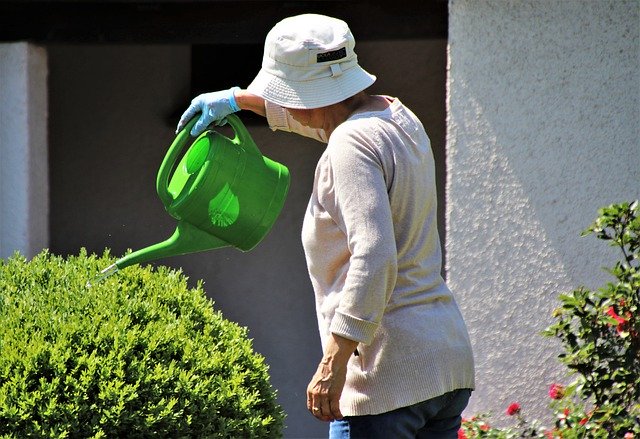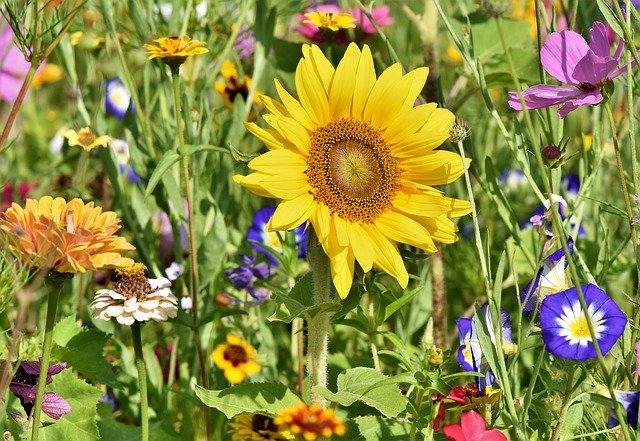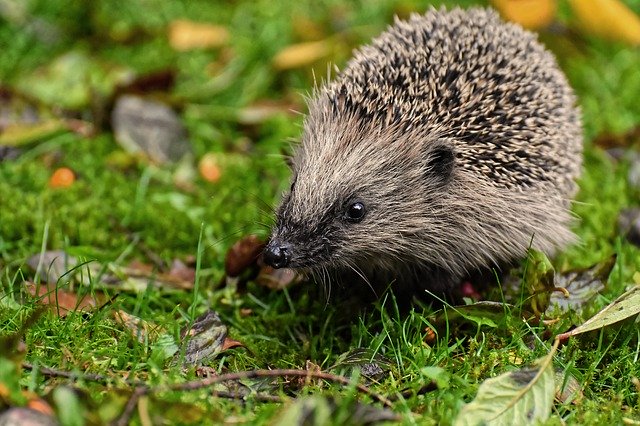How to Make Your Garden More Eco-Friendly
If you are lucky enough to have your own garden, then putting in a little effort can really reap the environmental rewards. This isn’t just about making your garden look nice – it’s about how to make the best use of your space to create something more eco-friendly and sustainable. We’ve taken a look at four different areas where you could make some changes, both small and large.
Garden Water Saving Tips
Looking after your garden properly means using a lot of water. Unless you get plenty of rain, right? Well, yes. This will save you having to turn the outdoor tap on regularly, but there are other ways you can utilise that rainwater to help the environment. The first thing you should think about is investing in your own water butt. This is a vessel or tank complete with a tap that collects your rainwater. You can then easily fill your watering can and use it during those dry periods where you can’t rely on a downpour. As you might guess from their name, Water Butts Direct is a company that specialises in this very thing. You can buy water butts in a number of different sizes and designs to suit gardens large and small, and using one of our Water Butts Direct voucher codes can also save you money on your purchase.
And away from the rain, there even more water savings tips you can take advantage of. For example, have you ever felt a bit wasteful when you pour your cooking water down the drain? So why not keep it for your garden instead? And there’s the added advantage that vegetable water contains extra nutrients for your plants too. But there’s another type of water you can reuse – the water from your shower. No we’re not talking installing some kind of collection device beneath your drain, but rather making use of that bit of water than runs free before you get in the shower, whilst you’re waiting for it to heat up. Just stick a bucket underneath the nozzle until you’re ready to jump in, then take it to the garden to use when you need it.
When you water your garden can also be a factor. It’s advised that you don’t water during the warmest part of the day, but instead do this either early in the morning or late in the afternoon. Temperatures at this time mean there is less chance of evaporation (compared to the middle of the day) yet still warm enough for the water to evaporate off the leaves (which is a problem when watering in the evening). And if you want to give your soil a bit of extra help in retaining water, then add some mulch to the surface. The courser the mulch, the better it is at helping water move down through the soil.

What Flowers Should I Plant?
You might think any sort of flower or plant is good for your garden, and you’d be right. But when it comes to being more eco-friendly, some are better than others. This is all about attracting bees to your patch and the two main types you can plant are native flowers and wildflowers. And native flowers will have the added advantage of being more pest-resistant and therefore reduce the need for using pesticides.

Encourage More Wildlife into Your Garden
Sticking to the wild theme, there are many other ways you can help bring native wild animals to your garden. Living in the UK, the most obvious wild animal is the hedgehog, because who doesn’t love having them pay a visit? Unfortunately, their numbers are on the decline, but we can all do our bit to encourage them. Begin by checking access points to your garden. Hedgehogs rely on small gaps underneath fences to move around and this can also help link up hedgehog habitats, so if you don’t have any, get digging! Attracting birds to your garden is also possible with a few small changes, namely a bird feeding table or area, and some water. And if you’d like birds to stay for nesting season, you can install a bird box in a sheltered area up high, away from predators.
Even though they may not as be as cute as hedgehogs and birds, insects can also be an important part of your garden’s ecosystem. We’re already talked about what plants can attract bees, but there also ways you can adjust your garden as a whole to help. When planting those wildflower seeds, why not consider devoting a section of your garden to the wild? This means moving away from the manicured lawns and borders and leaving it to its’ own devices a bit more. And if you want to go one step further, then you can start building an ‘insect hotel’. Use old cardboard tubes, wooden pallets, plastic bottles, broken plant pots and other bits and bobs to create layers than insects can live in and explore. And this is also a great way to gets kids involved and interested in the garden environment.

What Does Compost Do for a Garden?
Not only is a compost bin a great way to reduce your own waste, but the compost can have so many benefits for your soil too. Going back to the subject of saving water, it can help your soil retain water and break down soil particles to aid drainage and prevents soil erosion. So many reasons to invest in your own compost bin and get started!
None of these changes involve starting from scratch and getting a complete garden makeover, and many are just simple adjustments that can be done with minimum effort and cost. Even if it’s just a case of saving that pan of veggie water, this is more than manageable and can make a big difference in the long term. But if you are starting a big garden project, looking at is from a more eco-friendly perspective can reap you huge rewards, from encouraging growth of your own flowers and crops, to enjoying a regular hedgehog visitor or two.
By Anna Scott, 21st September 2020





